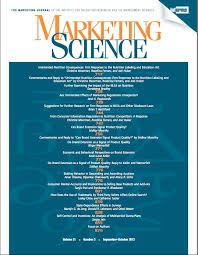
Haeubl, G., Dellaert, B. and Donkers, B. (2010). Tunnel Vision: Local Behavioral Influences on Consumer Decisions in Product Search Marketing Science, 29(3):438--455.
-
Affiliated authors
-
Publication year2010
-
JournalMarketing Science
We introduce and test a behavioral model of consumer product search that extends a baseline normative model of sequential search by incorporating nonnormative influences that are local in the sense that they reflect consumers' undue sensitivity to recently encountered alternatives. We propose two types of such local behavioral influences that, at each stage of a search process, can manifest themselves both in which of the products inspected up to that point is deemed to be the most preferred one (the product comparison decision) and whether to terminate the search at that stage (the stopping decision). The first of these influences is that consumers respond excessively to the attractiveness of the currently inspected product, at the expense of all others ('focalism'). The second proposed behavioral influence is that consumers overreact to the difference in attractiveness between the current product and the one encountered just prior to it ('local contrast'). Converging evidence from two experiments, which combine to guarantee both high internal and high external validity, provides support for the proposed behavioral influences. Our findings demonstrate that consumers' product comparison and stopping decisions in sequential product search are jointly governed by normative principles and by the proposed local behavioral influences.